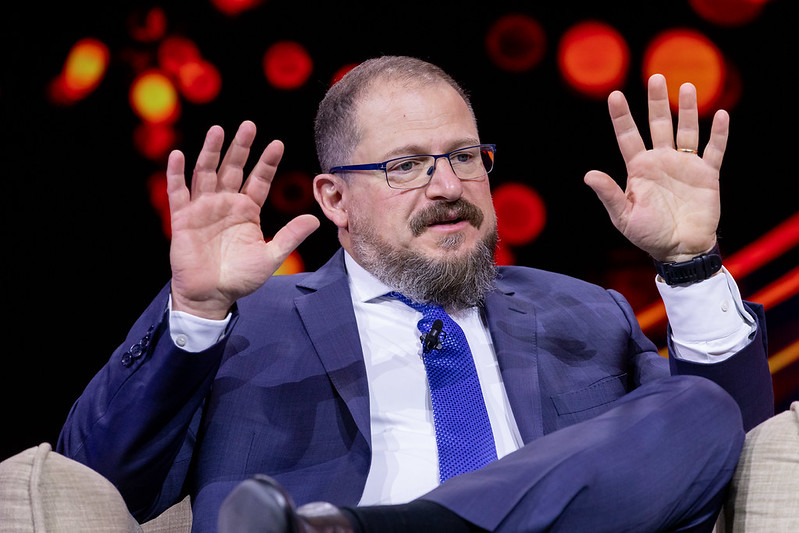- Qualcomm CEO Cristiano Amon said it’s too early to call winners in the AI race, comparing the current boom to the dotcom era while predicting the technology will bring long-term, transformative impact. His comments come amid growing concerns from industry leaders that soaring AI valuations may signal a developing market bubble.
Cristiano Amon, the CEO of Qualcomm, said that when it comes to the question of an AI bubble, “everybody’s playing to win,” but it’s still too early to predict exactly how it will play out in the long term.
“It’s hard right now to declare who the winners are,” he told the audience at the Fortune Global Forum in Riyadh. “The opportunity is probably bigger than people think, but it’s going to become a competitive environment very soon.”
Comparing the AI boom to the dotcom era, Amon said that the internet is much bigger now than people ever dreamed 25 years ago.
“Who we expected to be the winners in the early days—it changed. It happened at different places in different industries, but it was much bigger than people thought in 1990, and I feel it this way about AI,” he said. “When you think about AI in the long term, it is going to be massive, and it’s probably underestimated.”
Amon called AI a “massive opportunity,” but acknowledged there will be intense competition in the space. He said companies that “have invested in architectures that are able to compete and … to deal with the efficiency that is going to be required are going to be very well positioned” for this competition.
Fears that the AI industry might be in a bubble reminiscent of the dotcom era, when valuations surged far ahead of proven profitability, have been simmering over the past few months. As Big Tech companies continue to pour billions into AI development and deals, concerns have been growing that this investment may be outpacing sustainable growth. Industry figures, including former Intel CEO Pat Gelsinger and Bridgewater Associates founder Ray Dalio, have all voiced concerns about a potential AI bubble.
Earlier this year, Dalio warned that the current cycle on Wall Street appeared to be “very similar” to that seen in 1998 and 1999, before the dotcom bust. OpenAI CEO Sam Altman also weighed in when he suggested over the summer that investors might be “overexcited” about AI and compared the market’s reaction to the dotcom boom.
“When bubbles happen, smart people get overexcited about a kernel of truth,” he said in an interview reported by The Verge. “If you look at most of the bubbles in history, like the tech bubble, there was a real thing. Tech was really important. The internet was a really big deal. People got overexcited.”
Amazon founder Jeff Bezos also described the current AI surge as an “industrial bubble,” acknowledging the hype but seeing long-term value.












